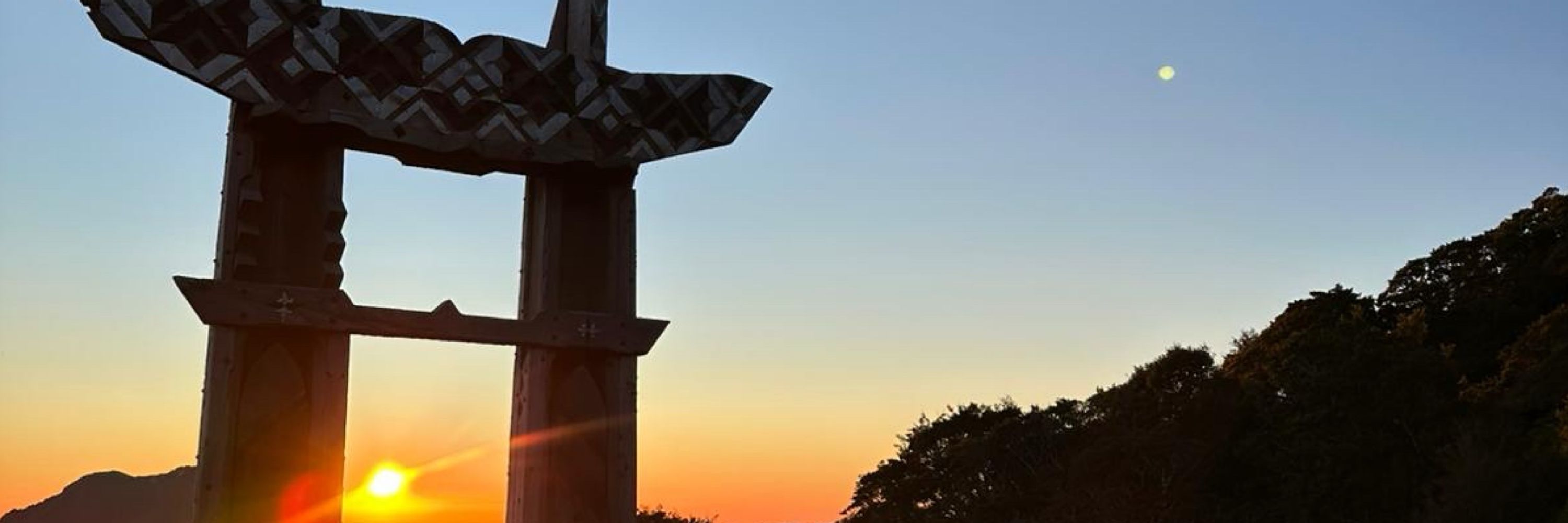
Chris Cornwall
@chrisecornwall.bsky.social
Kelp forests, coral reefs, climate change, coralline algae, ecologist, physiologist, geochemist. Senior Lecturer of Marine Biology. Te Herenga Waka Victoria University of Wellington. Group leader of coastal eco physiology group (CEG)
New paper out by my group and collaborators: Impacts of climate change on seaweeds, an editorial: www.frontiersin.org/journals/mar...

Frontiers | Editorial: Impacts of climate change on seaweeds
Climate change is drastically altering the composition and abundance of seaweed-dominated ecosystems throughout our oceans. Ocean warming and associated inte...
www.frontiersin.org
October 4, 2025 at 2:08 AM
New paper out by my group and collaborators: Impacts of climate change on seaweeds, an editorial: www.frontiersin.org/journals/mar...
Reposted by Chris Cornwall
Still plenty of time to submit papers to the Annals of Botany special issue on #Macroalgae and #EcosystemServices. Deadline for submissions is Nov 30th! #Kelp #Fucoid #seaweed #CCA @annbot.bsky.social @pippajmoore.bsky.social @jebyrnes.bsky.social @twernberg.bsky.social @chrisecornwall.bsky.social

September 30, 2025 at 6:54 PM
Still plenty of time to submit papers to the Annals of Botany special issue on #Macroalgae and #EcosystemServices. Deadline for submissions is Nov 30th! #Kelp #Fucoid #seaweed #CCA @annbot.bsky.social @pippajmoore.bsky.social @jebyrnes.bsky.social @twernberg.bsky.social @chrisecornwall.bsky.social
Reposted by Chris Cornwall
Over 70% of coral reefs in the tropical western Atlantic Ocean are projected to be in a state of erosion by 2040, increasing to nearly all reefs in 2100 if warming exceeds 2 °C above preindustrial levels, a study in Nature suggests. go.nature.com/48m9Y8F 🌊 🧪

September 18, 2025 at 1:18 PM
Over 70% of coral reefs in the tropical western Atlantic Ocean are projected to be in a state of erosion by 2040, increasing to nearly all reefs in 2100 if warming exceeds 2 °C above preindustrial levels, a study in Nature suggests. go.nature.com/48m9Y8F 🌊 🧪
Our paper out today in @nature.com describes a grim fate for coral reef growth under climate change in the Western Atlantic. We also estimate that reef restoration could offer pockets of local hope, but overall cannot keep up with the effects of climate change www.nature.com/articles/s41...

Reduced Atlantic reef growth past 2 °C warming amplifies sea-level impacts - Nature
An analysis of coral reefs in the tropical western Atlantic suggests that nearly all will be eroding by 2100 if global warming exceeds 2 °C, which will worsen the effects of sea-level rise.
www.nature.com
September 17, 2025 at 7:52 PM
Our paper out today in @nature.com describes a grim fate for coral reef growth under climate change in the Western Atlantic. We also estimate that reef restoration could offer pockets of local hope, but overall cannot keep up with the effects of climate change www.nature.com/articles/s41...
Reposted by Chris Cornwall
So excited to be apart of The Ocean in a High CO2 World international symposium🪸
October 12-16, 2026! See you there!
October 12-16, 2026! See you there!
Excited to announce that we will be hosting the 6th International Symposium on Oceans in a High CO2 World October 12 to 16th in Wellington at the Tākina event center! This conference will bring together marine climate change scientists from multiple disciplines. Save the date!

August 22, 2025 at 4:56 AM
So excited to be apart of The Ocean in a High CO2 World international symposium🪸
October 12-16, 2026! See you there!
October 12-16, 2026! See you there!
Excited to announce that we will be hosting the 6th International Symposium on Oceans in a High CO2 World October 12 to 16th in Wellington at the Tākina event center! This conference will bring together marine climate change scientists from multiple disciplines. Save the date!

August 21, 2025 at 9:42 AM
Excited to announce that we will be hosting the 6th International Symposium on Oceans in a High CO2 World October 12 to 16th in Wellington at the Tākina event center! This conference will bring together marine climate change scientists from multiple disciplines. Save the date!
Our new paper in Journal of Phycology has come out today. Low light and low water motion can exacerbate the effects of marine heatwaves on giant kelp:
onlinelibrary.wiley.com/doi/10.1111/...
onlinelibrary.wiley.com/doi/10.1111/...
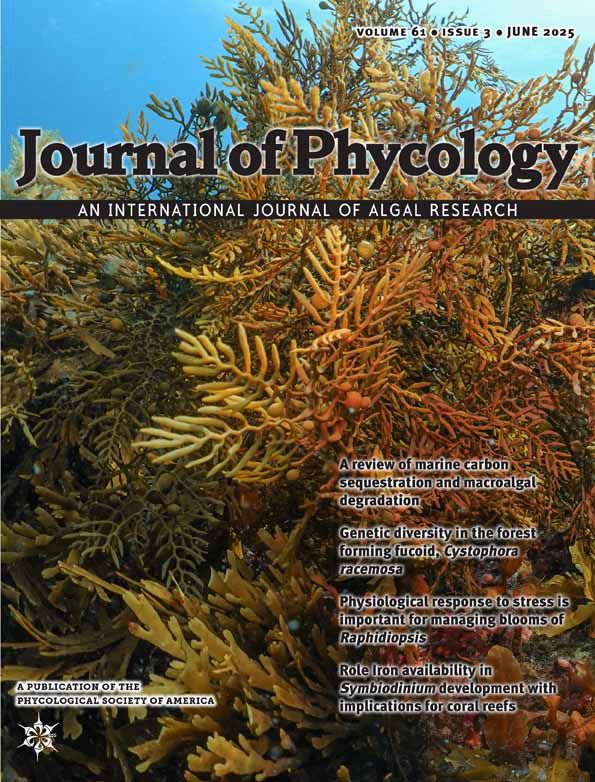
Light limitation and water velocity modify the impacts of simulated marine heatwaves on juvenile giant kelp
Coastal regions are complex habitats, where multiple natural and anthropogenic drivers can interact to affect the survival and growth of marine organisms. The giant kelp Macrocystis pyrifera is sensi...
onlinelibrary.wiley.com
July 19, 2025 at 5:44 AM
Our new paper in Journal of Phycology has come out today. Low light and low water motion can exacerbate the effects of marine heatwaves on giant kelp:
onlinelibrary.wiley.com/doi/10.1111/...
onlinelibrary.wiley.com/doi/10.1111/...
If anyone is looking for regular updates on my group’s research or news, we are more frequently posting things on instagram. It’s not a perfect platform, but hey. Chrisecornwall is my handle, with my lab group updates and student work posted on coastal_eco_physio_group
July 6, 2025 at 10:26 AM
If anyone is looking for regular updates on my group’s research or news, we are more frequently posting things on instagram. It’s not a perfect platform, but hey. Chrisecornwall is my handle, with my lab group updates and student work posted on coastal_eco_physio_group
Reposted by Chris Cornwall
See you all at the next #ITRS in #Tauranga, New Zealand 🇳🇿. Hosted by Chris Battersall, Chris Cornwall & Dave Schiel. Can’t wait to see you all there! @chrisecornwall.bsky.social @benthicecol.bsky.social @nessocon.bsky.social @katynicastro.bsky.social @pippajmoore.bsky.social @marclim-uk.bsky.social
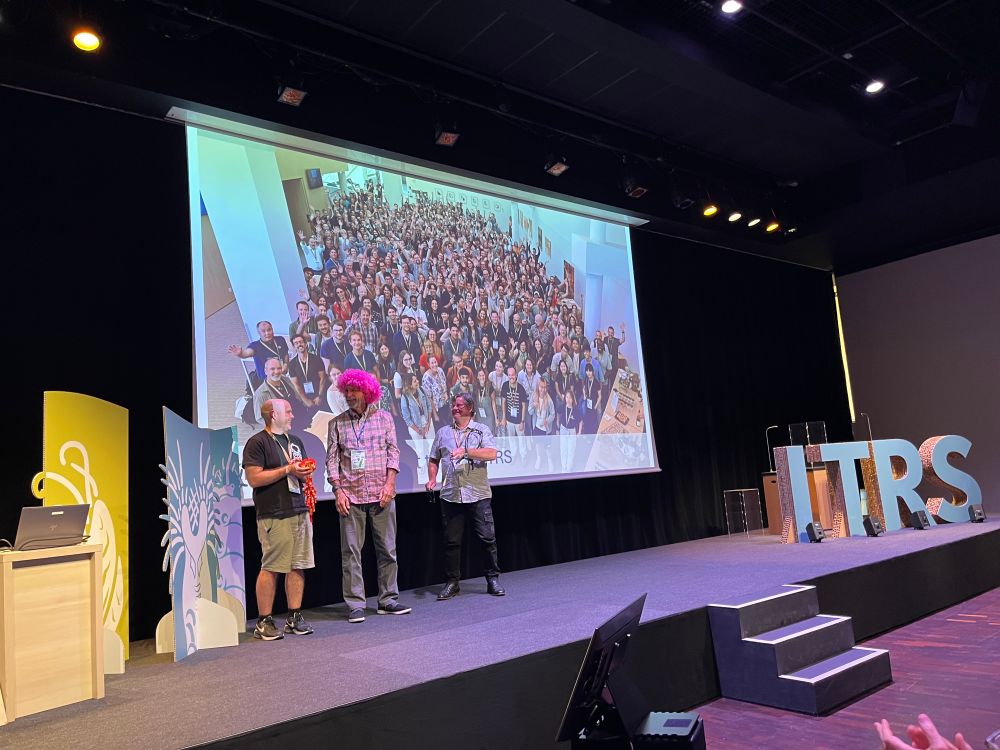
July 6, 2025 at 7:33 AM
See you all at the next #ITRS in #Tauranga, New Zealand 🇳🇿. Hosted by Chris Battersall, Chris Cornwall & Dave Schiel. Can’t wait to see you all there! @chrisecornwall.bsky.social @benthicecol.bsky.social @nessocon.bsky.social @katynicastro.bsky.social @pippajmoore.bsky.social @marclim-uk.bsky.social
Looking forward to it, see you all soon in Tauranga Aotearoa New Zealand 2028!!
See you all at the next #ITRS in #Tauranga, New Zealand 🇳🇿. Hosted by Chris Battersall, Chris Cornwall & Dave Schiel. Can’t wait to see you all there! @chrisecornwall.bsky.social @benthicecol.bsky.social @nessocon.bsky.social @katynicastro.bsky.social @pippajmoore.bsky.social @marclim-uk.bsky.social

July 6, 2025 at 9:45 AM
Looking forward to it, see you all soon in Tauranga Aotearoa New Zealand 2028!!
Same here, loved catching up with friends! Now on to ITRS 2028 in Tauranga!
Ditto! Love this community. Our temperate reef #family ☺️❤️🌊🐟🦀🐚 @chrisecornwall.bsky.social @cariocamayer.bsky.social @anaellelemasson.bsky.social @nessocon.bsky.social @pippajmoore.bsky.social @aec13.bsky.social @dansmale1.bsky.social @jngriffy.bsky.social @melaniejbishop.bsky.social
Cheers to a great #ITRS2025 🍻
Wonderful to reconnect with old friends meet new ones & dive into exciting science
Until next time, so long!
@marclim-uk.bsky.social @svenjatidau.bsky.social @louisefirth.bsky.social @szndohrn.bsky.social @unipisa.bsky.social #ITRS @univlille.bsky.social
Wonderful to reconnect with old friends meet new ones & dive into exciting science
Until next time, so long!
@marclim-uk.bsky.social @svenjatidau.bsky.social @louisefirth.bsky.social @szndohrn.bsky.social @unipisa.bsky.social #ITRS @univlille.bsky.social
July 6, 2025 at 9:42 AM
Same here, loved catching up with friends! Now on to ITRS 2028 in Tauranga!
Reposted by Chris Cornwall
Thanks for arranging this #ITRS2025 workshop 🤩 It was a very useful exercise, and I loved going through all the steps of planning our perfect will-never-ever-get-funded project 😂 and to make our priorities when reality (i.e. huge funding cuts) were thrown at us 😂
Check out some snaps from our recent MEDDLE workshop at #ITRS Brest, France on experimental design. Great participants! @scor-cobs.bsky.social
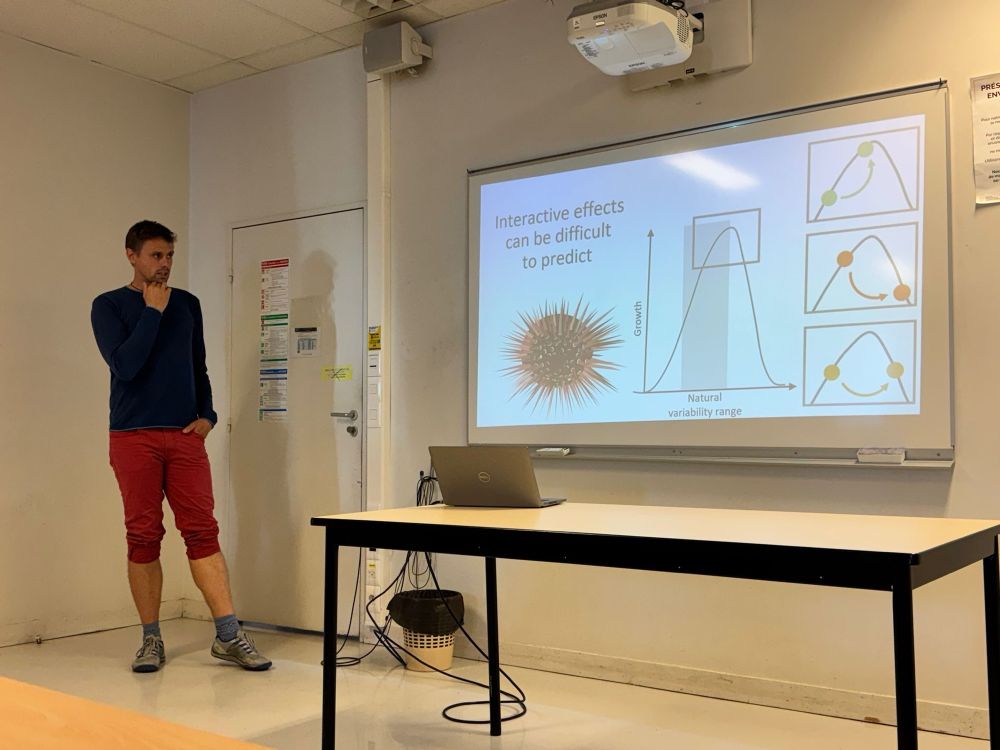
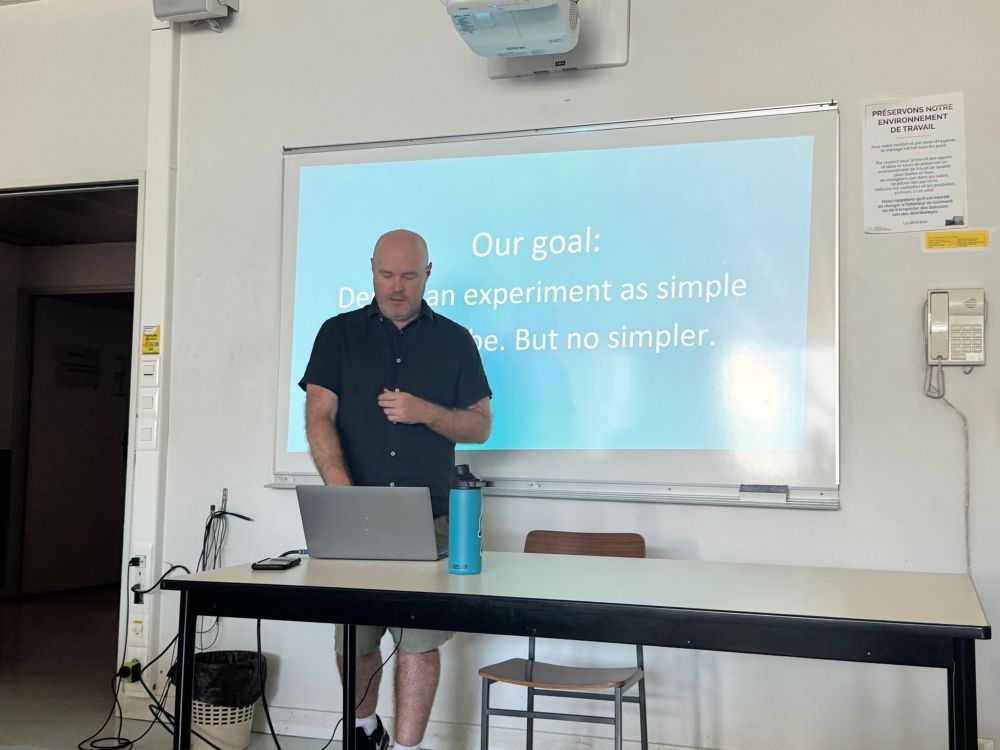
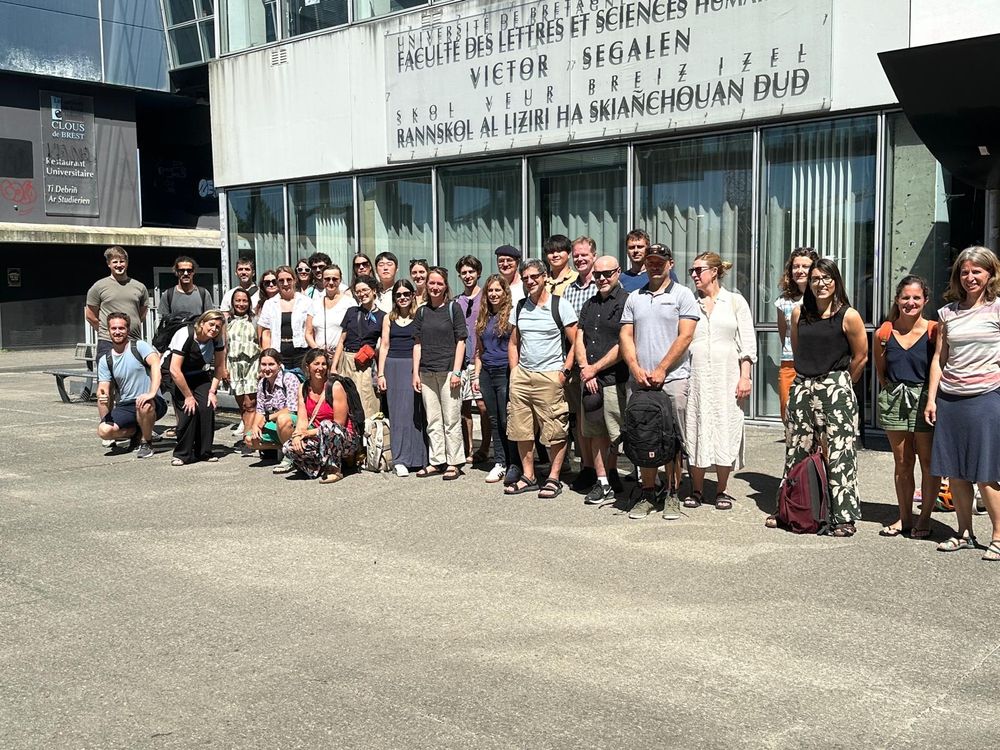
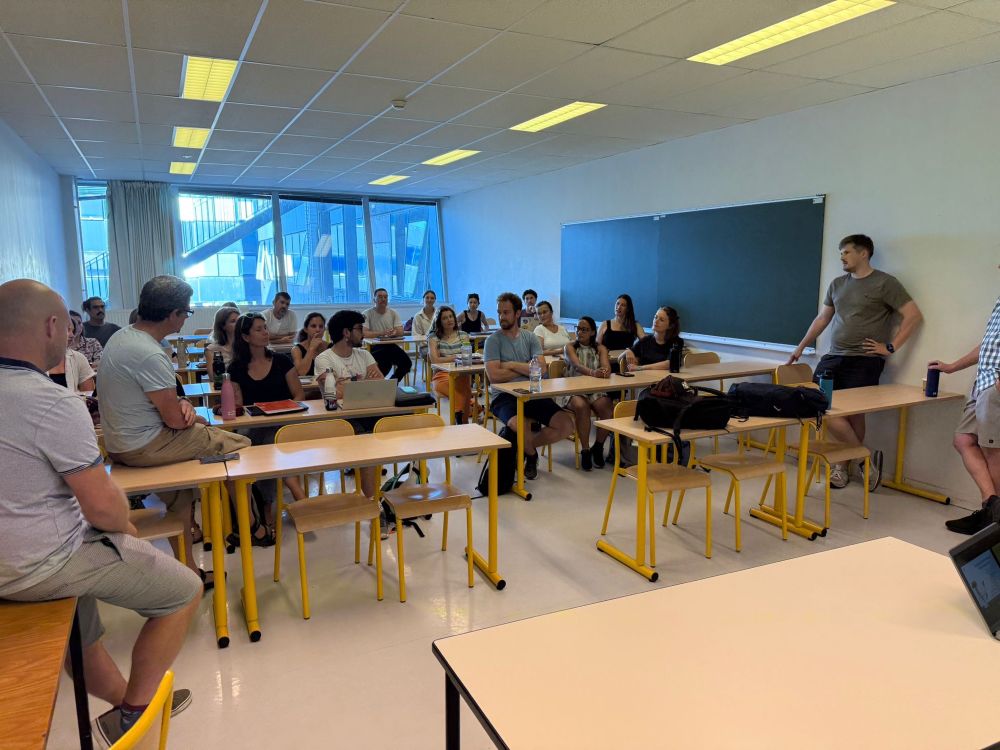
July 2, 2025 at 3:43 PM
Thanks for arranging this #ITRS2025 workshop 🤩 It was a very useful exercise, and I loved going through all the steps of planning our perfect will-never-ever-get-funded project 😂 and to make our priorities when reality (i.e. huge funding cuts) were thrown at us 😂
Check out some snaps from our recent MEDDLE workshop at #ITRS Brest, France on experimental design. Great participants! @scor-cobs.bsky.social




July 2, 2025 at 2:41 PM
Check out some snaps from our recent MEDDLE workshop at #ITRS Brest, France on experimental design. Great participants! @scor-cobs.bsky.social
Check out our first Collection of articles we hope to publish in Ocean Ecosystems!
For #WorldOceanDay, Ocean Ecosystems calls for submissions to its first Collection on Ocean Ecosystem Services and Sustainable Development Goals. It invites original research that will help us understand how to protect ocean health and ensure well-being of future generations.
bit.ly/3FqZ5Xn
bit.ly/3FqZ5Xn

June 25, 2025 at 2:09 PM
Check out our first Collection of articles we hope to publish in Ocean Ecosystems!
Reposted by Chris Cornwall
Can tropical corals find refuge at higher latitudes under future warming? In our new paper in Science Advances, we argue that coral range expansion will be *far too slow* for most coral species to outpace climate change. 🪸🌊
www.science.org/doi/10.1126/...
A short 🧵 (1/16)
www.science.org/doi/10.1126/...
A short 🧵 (1/16)
June 7, 2025 at 9:06 AM
Can tropical corals find refuge at higher latitudes under future warming? In our new paper in Science Advances, we argue that coral range expansion will be *far too slow* for most coral species to outpace climate change. 🪸🌊
www.science.org/doi/10.1126/...
A short 🧵 (1/16)
www.science.org/doi/10.1126/...
A short 🧵 (1/16)
Our paper out today by @nvogtvincent.co.uk Anthropogenic climate change will likely outpace coral range expansion | Science Advances www.science.org/doi/10.1126/...
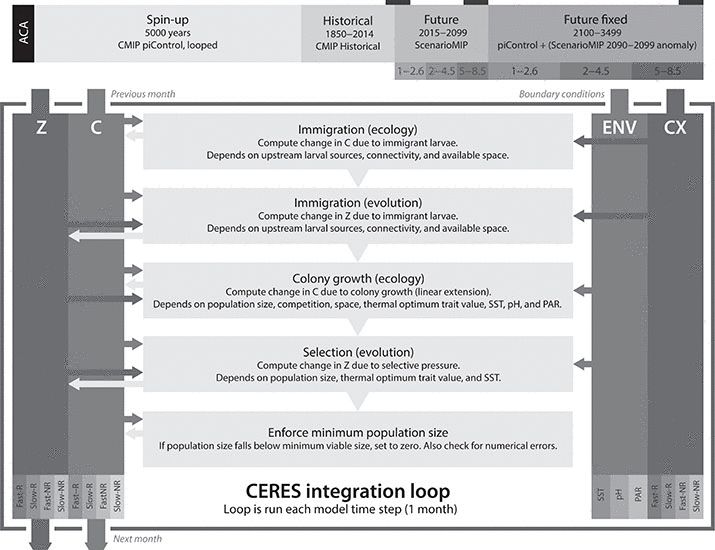
Anthropogenic climate change will likely outpace coral range expansion
Coral reef range expansion takes centuries, and higher-latitude seas are therefore ineffective refugia for most tropical corals.
www.science.org
June 7, 2025 at 2:11 AM
Our paper out today by @nvogtvincent.co.uk Anthropogenic climate change will likely outpace coral range expansion | Science Advances www.science.org/doi/10.1126/...
Ocean Ecosystems is calling for submissions to our collection on Ocean Ecosystem Services and Sustainable Development Goals, aiming to enhance our understanding of how to protect ocean health while ensuring the well-being of future generations www.biomedcentral.com/collections/...
Ocean Ecosystem Services and Sustainable Development Goals
www.biomedcentral.com
May 30, 2025 at 8:14 AM
Ocean Ecosystems is calling for submissions to our collection on Ocean Ecosystem Services and Sustainable Development Goals, aiming to enhance our understanding of how to protect ocean health while ensuring the well-being of future generations www.biomedcentral.com/collections/...
Check out @ashtyn-isaak.bsky.social and her experiment at @seasim-aims.bsky.social along with other PhD student @hollykoch20.bsky.social ! Such an exciting collaboration and experiment! It explores how light and temperature related bleaching differs from the effects of ocean acidification
PhD candidates @ashtyn-isaak.bsky.social & @hollykoch20.bsky.social are researching how ocean acidification and high light contribute to bleaching, which includes:
🧪36 tanks, 4 species, 12 treatments, 400+ samples
🧬2 corals & 2 crustose coralline algae
🔬 Drivers: light, temp, & 4 levels of PCO2
🧪36 tanks, 4 species, 12 treatments, 400+ samples
🧬2 corals & 2 crustose coralline algae
🔬 Drivers: light, temp, & 4 levels of PCO2



May 28, 2025 at 6:52 AM
Check out @ashtyn-isaak.bsky.social and her experiment at @seasim-aims.bsky.social along with other PhD student @hollykoch20.bsky.social ! Such an exciting collaboration and experiment! It explores how light and temperature related bleaching differs from the effects of ocean acidification
We just returned from a successful trip to Vancouver Island, exploring dissolved inorganic carbon use of seaweeds there. We collected more than 200 samples from over 40 species! Big help from the three students on the team (Denisa Berbece, Alessandra Walsh and Eloise Bennett)
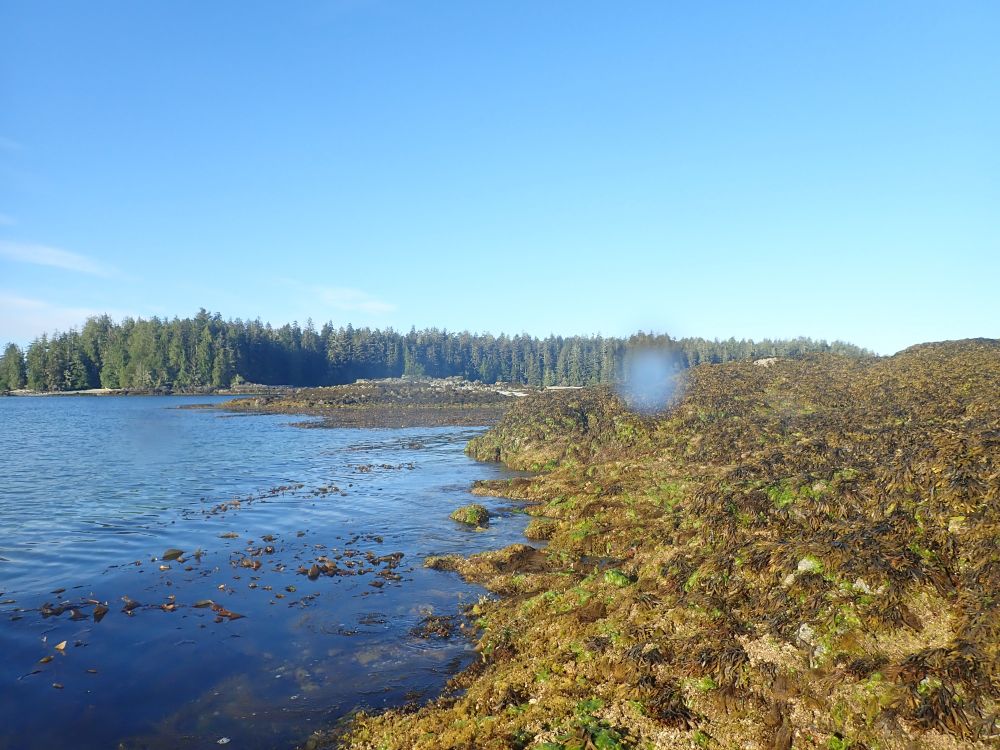
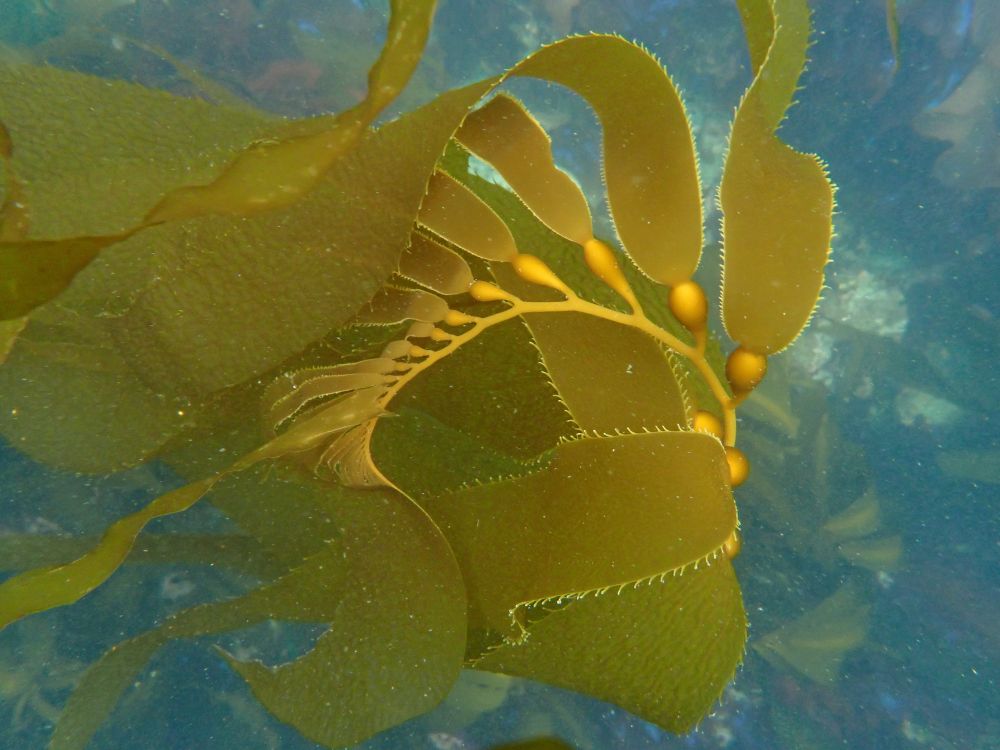
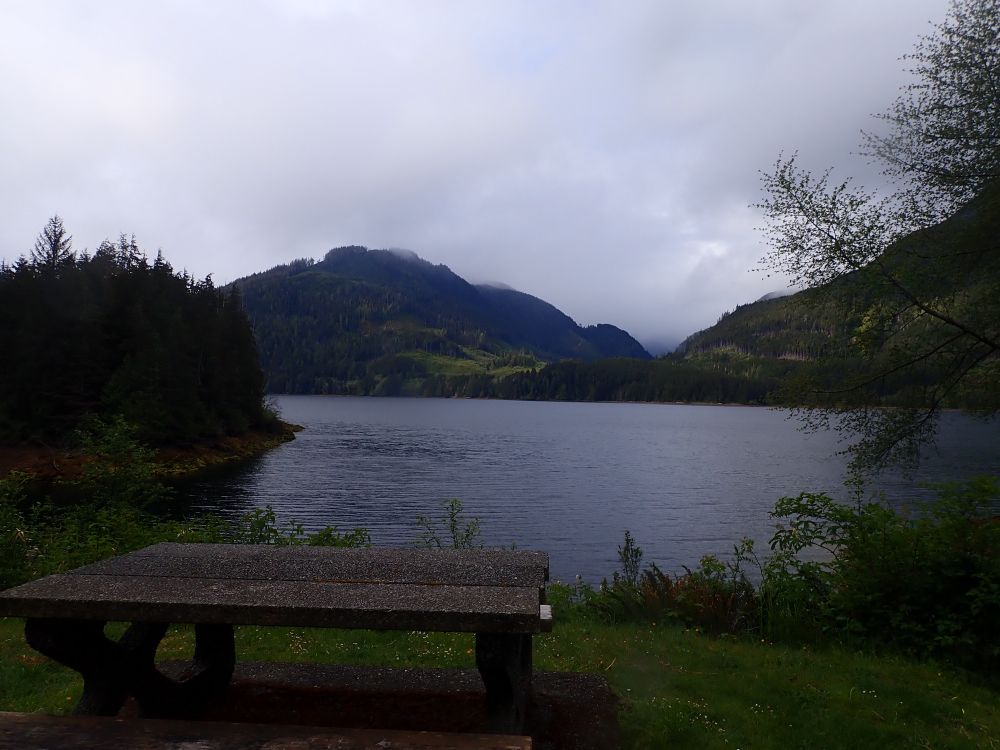
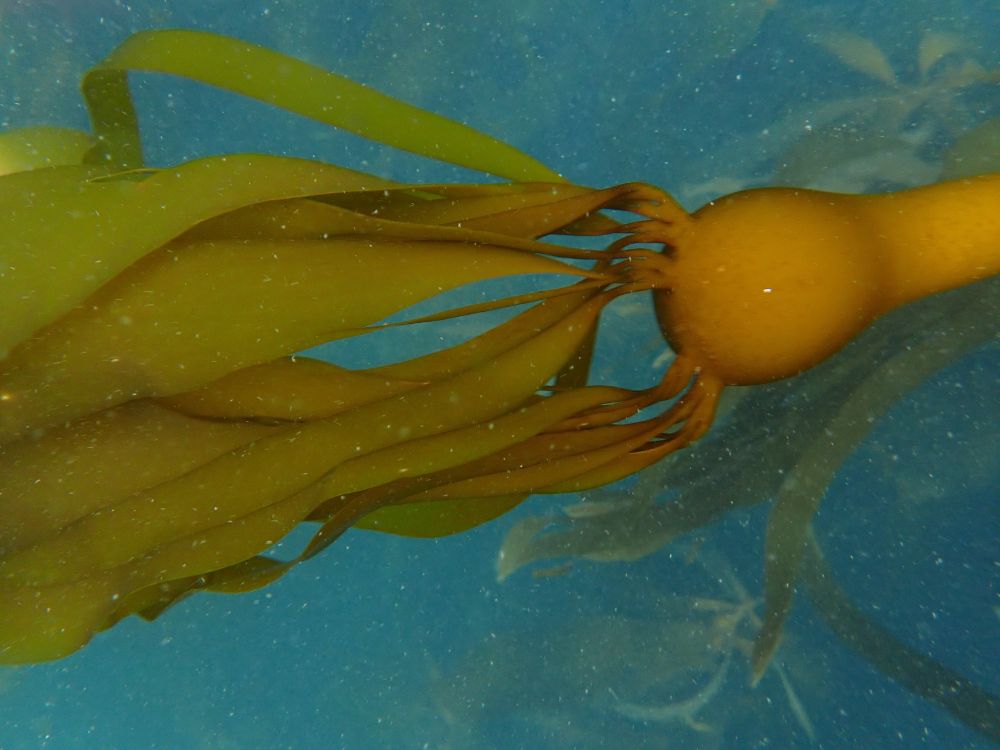
May 25, 2025 at 2:20 AM
We just returned from a successful trip to Vancouver Island, exploring dissolved inorganic carbon use of seaweeds there. We collected more than 200 samples from over 40 species! Big help from the three students on the team (Denisa Berbece, Alessandra Walsh and Eloise Bennett)
Reposted by Chris Cornwall
Reminiscing on the fantastic conference put on by @aslo.org at the Aquatic Sciences Meeting in March 2025 in Charlotte, North Carolina
I presented some of my results from two natural analogue sites; Semi-enclosed lagoon and a CO2 vent
How do coralline algae survive in extreme environments?
I presented some of my results from two natural analogue sites; Semi-enclosed lagoon and a CO2 vent
How do coralline algae survive in extreme environments?
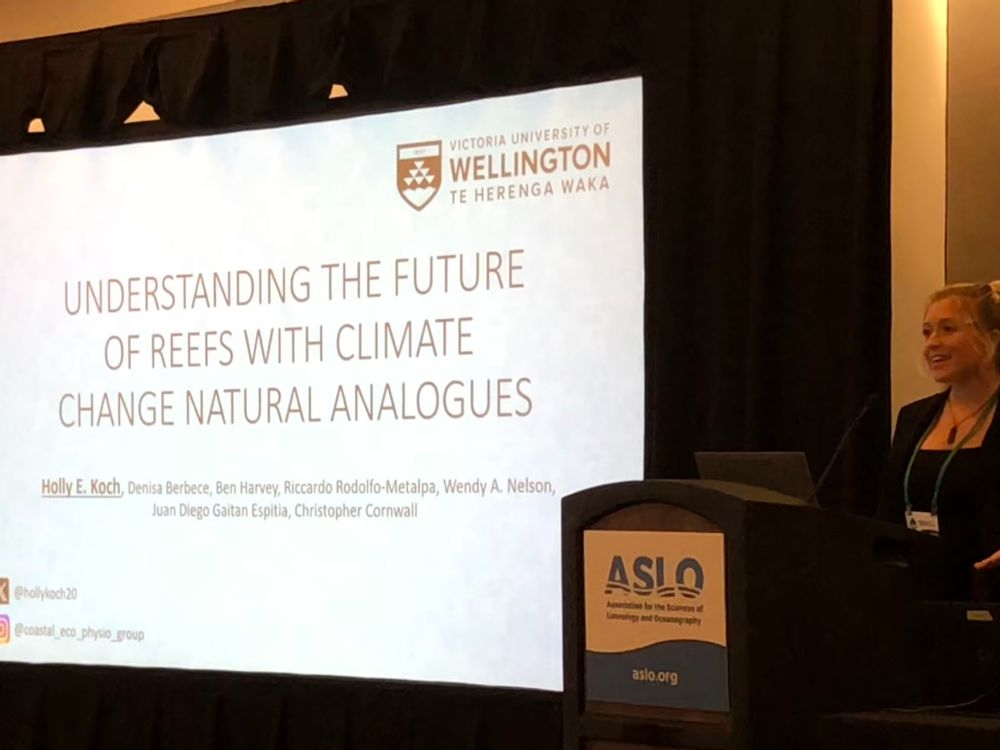
May 21, 2025 at 3:55 AM
Reminiscing on the fantastic conference put on by @aslo.org at the Aquatic Sciences Meeting in March 2025 in Charlotte, North Carolina
I presented some of my results from two natural analogue sites; Semi-enclosed lagoon and a CO2 vent
How do coralline algae survive in extreme environments?
I presented some of my results from two natural analogue sites; Semi-enclosed lagoon and a CO2 vent
How do coralline algae survive in extreme environments?
Reposted by Chris Cornwall
🚨🚨🚨 TWO FULLY FUNDED POSITIONS 🚨🚨🚨
Both working out how shells are made, building quantitative models of the #biology, #mineralogy and #geochemistry of #biomineralisation.
Come join our cross-disciplinary team funded by @leverhulme.ac.uk !
#phd #postdoc 🌊
biomin.esc.cam.ac.uk/research/gra...
Both working out how shells are made, building quantitative models of the #biology, #mineralogy and #geochemistry of #biomineralisation.
Come join our cross-disciplinary team funded by @leverhulme.ac.uk !
#phd #postdoc 🌊
biomin.esc.cam.ac.uk/research/gra...

Building Shells
Towards a Mechanistic Understanding of Biomineralisation
biomin.esc.cam.ac.uk
May 6, 2025 at 6:43 PM
🚨🚨🚨 TWO FULLY FUNDED POSITIONS 🚨🚨🚨
Both working out how shells are made, building quantitative models of the #biology, #mineralogy and #geochemistry of #biomineralisation.
Come join our cross-disciplinary team funded by @leverhulme.ac.uk !
#phd #postdoc 🌊
biomin.esc.cam.ac.uk/research/gra...
Both working out how shells are made, building quantitative models of the #biology, #mineralogy and #geochemistry of #biomineralisation.
Come join our cross-disciplinary team funded by @leverhulme.ac.uk !
#phd #postdoc 🌊
biomin.esc.cam.ac.uk/research/gra...
Māia Holman-Wharehoka gives her talk at the International Seaweed Symposium 2025 in Victoria British Columbia. Use of traditional weaving methods combined with restoration of giant kelp in Te Whanganui -Ā-Tara, Wellington Aotearoa
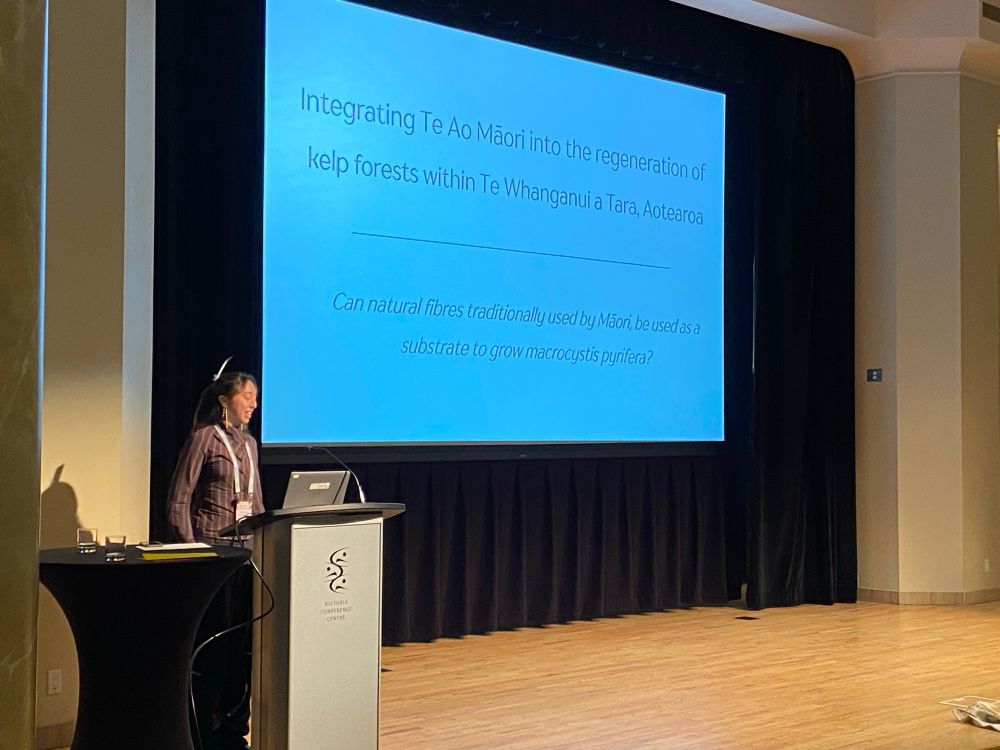
May 6, 2025 at 6:48 PM
Māia Holman-Wharehoka gives her talk at the International Seaweed Symposium 2025 in Victoria British Columbia. Use of traditional weaving methods combined with restoration of giant kelp in Te Whanganui -Ā-Tara, Wellington Aotearoa
Reposted by Chris Cornwall
3. Blocking in time, by Steeve Comeau and @chrisecornwall.bsky.social
Learn how to estimate the effects of two drivers on a response when your experiment is ‘blocked’ i.e. experimental units grouped in time, often because it’s not feasible to do all at once.
nzoac.nz/s/Blocking_i...
Learn how to estimate the effects of two drivers on a response when your experiment is ‘blocked’ i.e. experimental units grouped in time, often because it’s not feasible to do all at once.
nzoac.nz/s/Blocking_i...
Blocking in time
nzoac.nz
April 28, 2025 at 11:55 AM
3. Blocking in time, by Steeve Comeau and @chrisecornwall.bsky.social
Learn how to estimate the effects of two drivers on a response when your experiment is ‘blocked’ i.e. experimental units grouped in time, often because it’s not feasible to do all at once.
nzoac.nz/s/Blocking_i...
Learn how to estimate the effects of two drivers on a response when your experiment is ‘blocked’ i.e. experimental units grouped in time, often because it’s not feasible to do all at once.
nzoac.nz/s/Blocking_i...
Reposted by Chris Cornwall
2. Analysing scenarios, by Steeve Comeau and @chrisecornwall.bsky.social
Learn how to estimate the effects of two drivers on a response when your experimental treatments are designed to reflect future climate scenarios.
nzoac.nz/s/Scenario_a...
Learn how to estimate the effects of two drivers on a response when your experimental treatments are designed to reflect future climate scenarios.
nzoac.nz/s/Scenario_a...
Scenario approach
nzoac.nz
April 28, 2025 at 11:55 AM
2. Analysing scenarios, by Steeve Comeau and @chrisecornwall.bsky.social
Learn how to estimate the effects of two drivers on a response when your experimental treatments are designed to reflect future climate scenarios.
nzoac.nz/s/Scenario_a...
Learn how to estimate the effects of two drivers on a response when your experimental treatments are designed to reflect future climate scenarios.
nzoac.nz/s/Scenario_a...
We are hosting the 39th ASPAB meeting at Te Herenga Waka Victoria University of Wellington. 24th to 25th November. Please come if you are interested in seaweed!
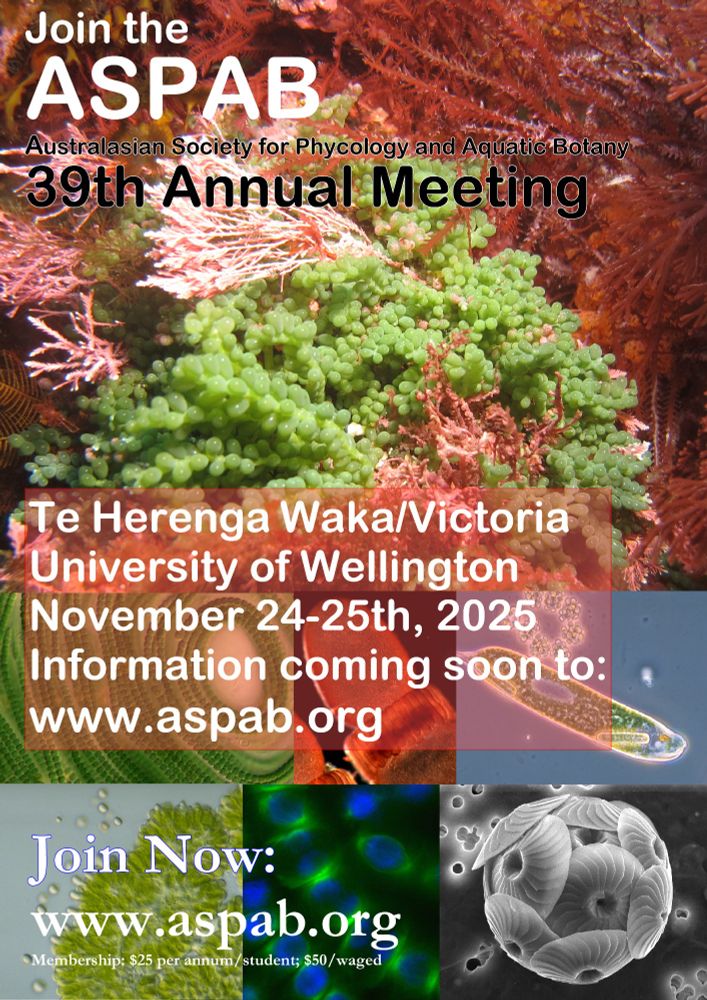
March 23, 2025 at 9:11 PM
We are hosting the 39th ASPAB meeting at Te Herenga Waka Victoria University of Wellington. 24th to 25th November. Please come if you are interested in seaweed!

